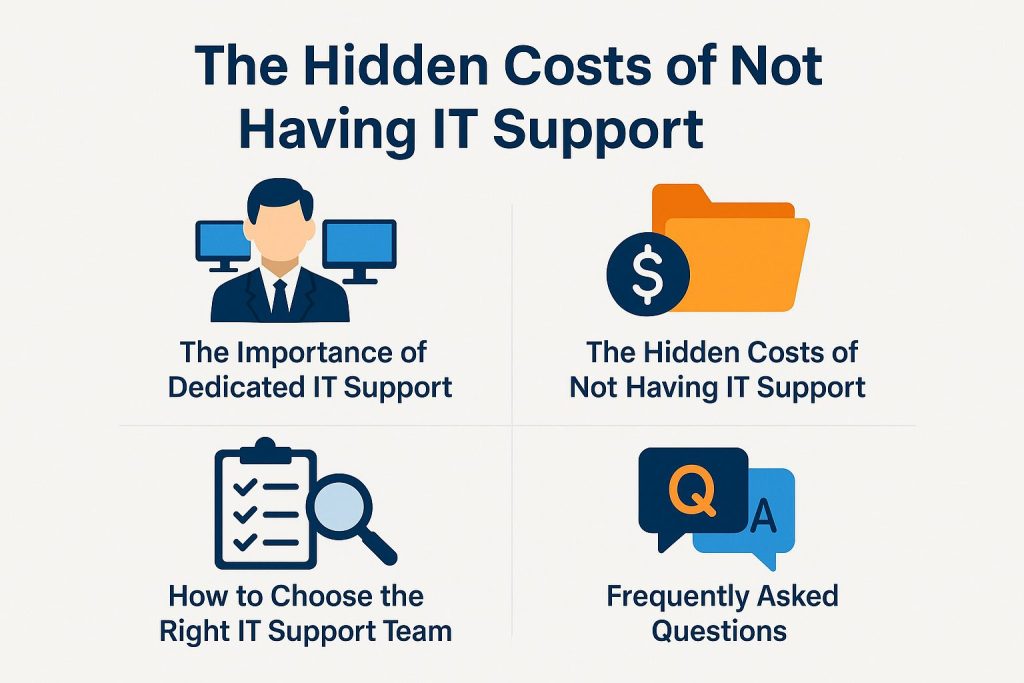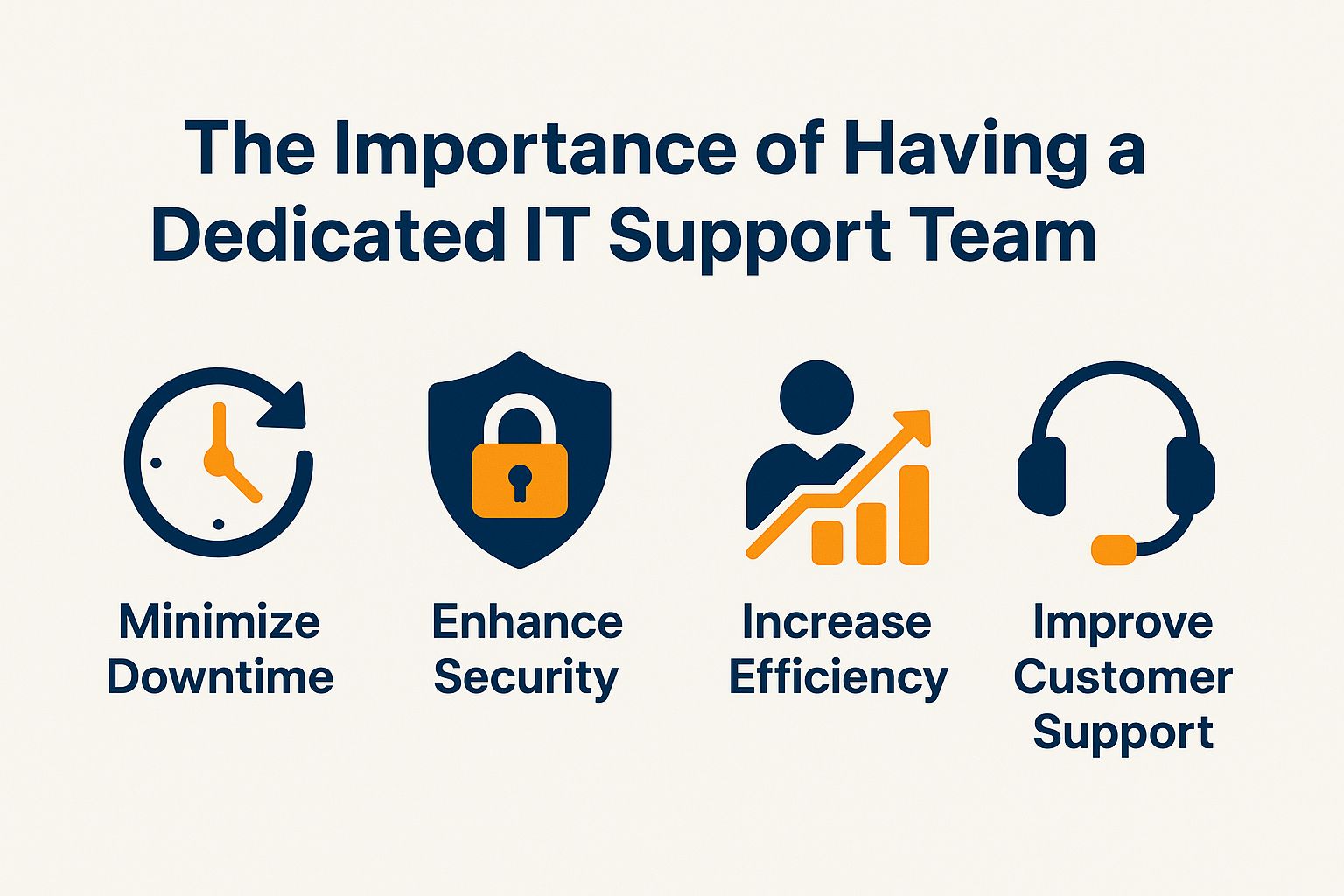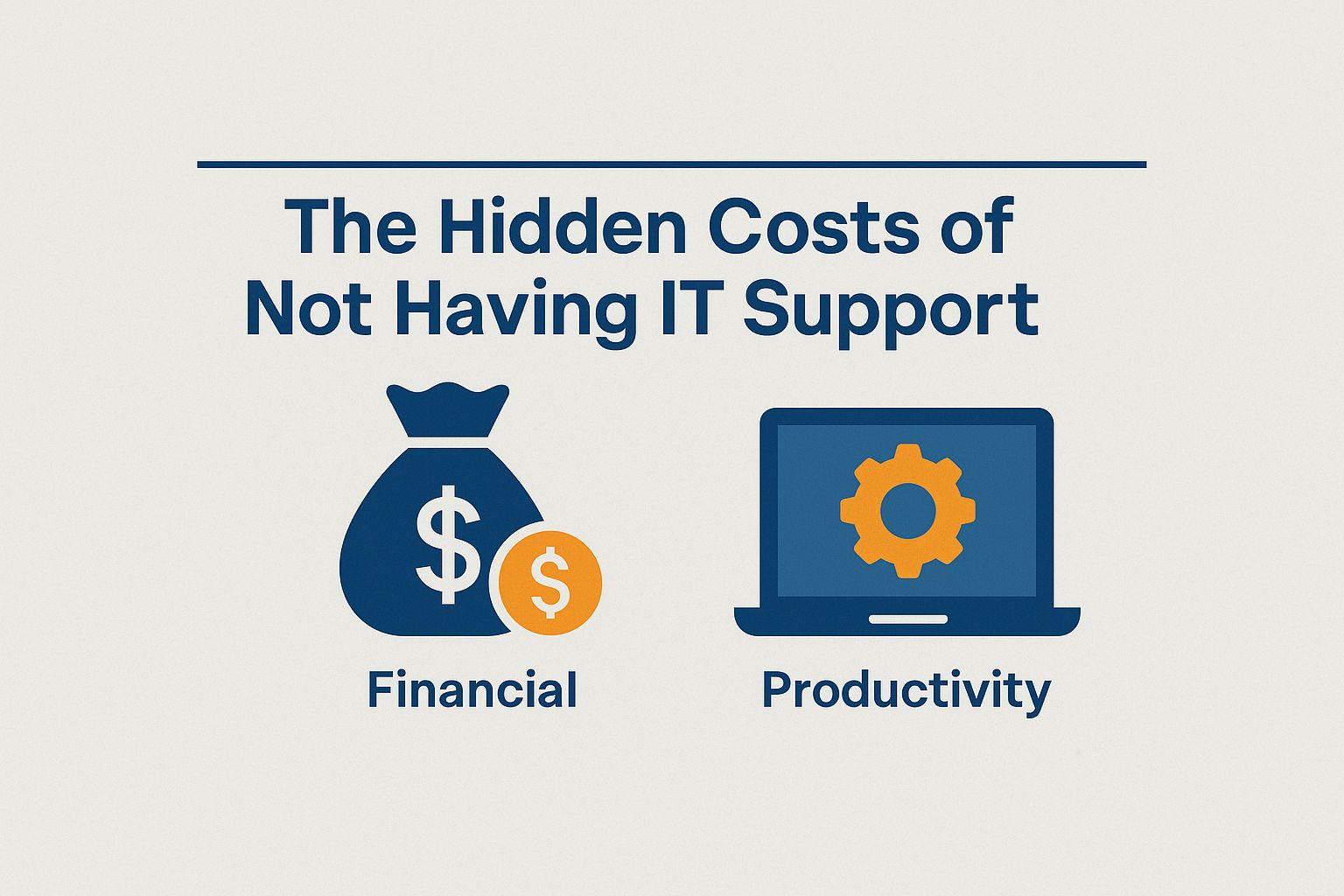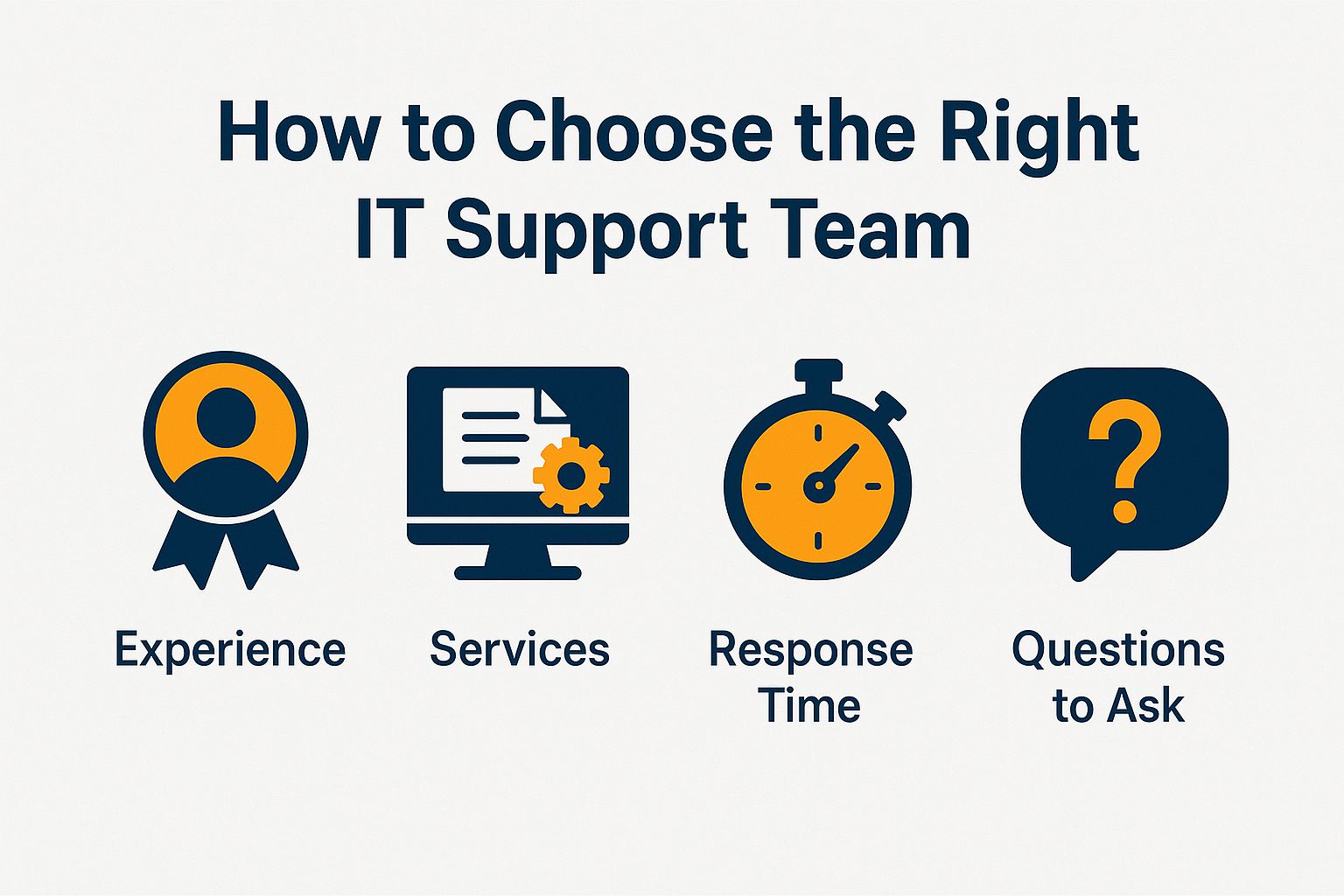The Hidden Costs of Not Having a Dedicated IT Support Team

Today, a dedicated IT support team is vital for business success. It ensures continuity and manages risks effectively. This article examines the benefits of dedicated IT support teams. They help organizations and improve customer experience and workflow efficiency. It reveals the hidden costs of inadequate IT support. These oversights can harm financial performance, operational efficiency, and workforce productivity. Furthermore, it offers guidance on selecting the right IT support team to ensure that businesses thrive in an increasingly competitive environment.
The Importance of Having a Dedicated IT Support Team
In today’s technology-driven landscape, the significance of having a dedicated IT support team for businesses is paramount. A strong IT team helps organizations stay productive. They quickly address technical issues, reduce service interruptions, and minimize downtime.
With technical support readily available, companies enhance their operational efficiency, ensuring that systems remain secure and functional. Furthermore, a dedicated IT team is essential for managing the IT infrastructure, offering not only immediate troubleshooting but also strategic planning for long-term technology adoption, software updates, and scalability. To support these efforts, businesses can utilize managed IT support specifically designed for small businesses to streamline their technology management.
This proactive approach helps businesses focus on core operations. It improves customer satisfaction, reduces risks, and supports business growth.

Benefits for Businesses and Their Customers
A dedicated IT support team offers many benefits for businesses and their customers, boosting operational efficiency. With an IT team focused on resolving technical issues, businesses can minimize downtime and improve employee productivity, which leads to faster service delivery and better customer experiences.
Effective technical support is essential for service level agreements (SLAs). It ensures customer expectations are met, boosting client trust and reliability. This reliability not only boosts customer satisfaction but also fosters loyalty and supports business growth in competitive markets.
For example, a retail company that implemented a dedicated IT support team achieved a 30% reduction in system outages. As a result, customers experienced faster checkouts and improved online shopping experiences, which led to a measurable increase in sales.
In another case study involving a financial services firm, prompt IT assistance enabled agents to address customer inquiries more efficiently, resulting in a 40% reduction in response times. These improvements translate into higher customer trust and retention, ultimately demonstrating that investing in IT support is not merely an operational cost but a strategic investment and growth driver that positions a business favorably in today’s market landscape.
The Hidden Costs of Not Having IT Support
The hidden costs of lacking adequate IT support can be significant, often resulting in financial losses stemming from system failures, downtime, and compromised data security.
Without a dedicated IT team, businesses encounter a heightened risk of technical issues and communication breakdowns that can disrupt operations and lead to substantial productivity declines.
Additionally, the absence of technical support increases an organization’s vulnerability to cybersecurity threats and hardware issues, potentially resulting in expensive data breaches and legal compliance challenges.
These hidden costs can hinder business strategies and affect growth. Organizations must prioritize IT investments and effective risk management.

Financial and Productivity Impact on Businesses
Businesses without effective IT support face high costs and losses. They often lose productivity when employees can’t access essential tools due to technical issues. This leads to frustration and lower efficiency.
Without risk management strategies, these challenges grow. Businesses must invest more in IT to fix preventable problems.
For instance, a mid-sized company with frequent network outages might find employees spending hours each week troubleshooting instead of working on projects. This causes project delays and lowers morale. This unproductive time not only delays project timelines but also erodes employee morale, potentially increasing turnover rates and imposing additional hiring costs and lost revenue.
Additionally, companies may face unexpected costs for emergency IT repairs and downtime. This creates a cycle of financial instability and competitive disadvantage.
Businesses can improve efficiency by prioritizing a clear IT budget. This budget should cover maintenance, employee training, and support resources.
How to Choose the Right IT Support Team
Choosing the right IT support team is crucial for businesses. It can greatly affect their technology success and efficiency.
Organizations must assess factors before outsourcing IT services or keeping an in-house team. Each option has unique benefits that should align with the business’s IT strategy.
Effective vendor management and service management practices are vital in the selection process, as these elements directly influence the quality of technical support, service management, and responsiveness to incidents that may occur (our professional tech support guide offers in-depth insights).

Key Factors and Questions to Consider
When choosing an IT support team, businesses should consider key factors and ask important questions to guide their decision.
Questions about support efficiency, performance metrics, and response times provide insights into operational capabilities and service reliability. Understanding these factors helps ensure that the chosen IT support can meet the organization’s changing needs.
Additionally, it is important to assess the team’s expertise in relevant technologies and whether they provide proactive monitoring, regular updates, and helpdesk support. Evaluating the flexibility of the IT support contract can significantly influence how swiftly and effectively a business can adapt its IT solutions to changing demands, impacting cost-benefit analysis and resource allocation.
Furthermore, probing into the team’s track record in crisis management and their approach to incident management will illuminate their preparedness for critical situations.
Ultimately, a comprehensive examination of these aspects not only enhances the efficiency of support services but also strengthens the overall IT framework and IT governance, which is vital for long-term success and innovation.
Frequently Asked Questions
What are the hidden costs of not having dedicated IT support?
The hidden costs of lacking a dedicated IT support team include lost productivity, a higher risk of cyber attacks, and potential data loss or downtime.
Why is dedicated IT support important for businesses?
Having a dedicated IT support team ensures that all technical issues are promptly addressed, minimizing downtime and maximizing productivity. They also provide valuable expertise and support for cyber security and data protection.
Can’t we just rely on freelancers or outsourcing for IT support, or should we focus on internal IT team development?
Freelancers or outsourcing may seem cost-effective. However, they often lack a full understanding of your business and its specific IT needs. This can lead to slower response times and miscommunication. In the end, it may cost your business more.
What are some common examples of hidden costs of not having a dedicated IT support team?
Common examples include delayed or lost sales due to technical issues. Employee frustration and decreased morale can also occur. Additionally, there may be legal or financial consequences from data breaches or system failures.
How can having a dedicated IT support team actually save us money in the long run through strategic investment and professional development?
A dedicated IT support team can save money by preventing technical issues and minimizing downtime. This reduces lost productivity and potential legal or financial consequences. They also offer proactive maintenance and guidance. This helps prevent costly system failures or data breaches.
What other benefits can a dedicated IT support team provide for a business, such as remote support and cloud services?
In addition to addressing technical issues, a dedicated IT support team provides valuable insight. They guide you on optimizing your business’s IT infrastructure and security. They can assist with implementing new technologies and streamlining processes. This increases overall efficiency and competitiveness.




